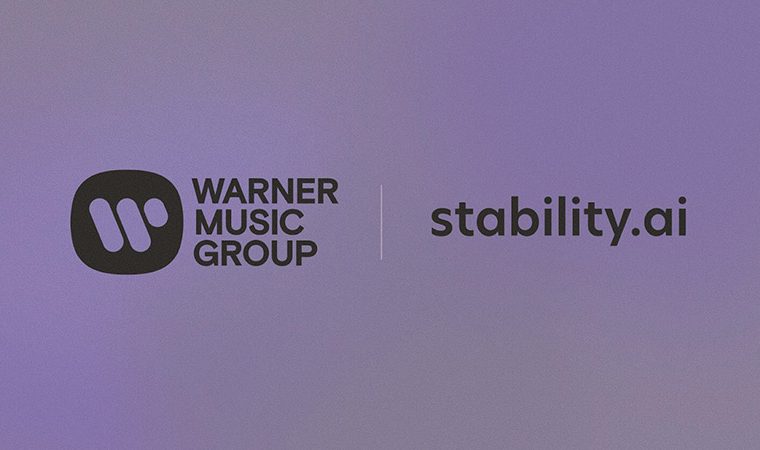
New National Poll on the Future of Music Shows Strong Opinions on the Impact of AI on Music
A new national poll on the future of music from The Hollywood Reporter (THR) and the Frost School of Music at the University of Miami highlights the fact that most people, regardless of their age, have strong views on music created with AI, with more than half (52%) of respondents saying they aren’t interested in listening to music created with AI, even if made by their favorite music artist, while just under a third (32%) are interested in doing so. This is despite the fact that a majority of respondents, 66%, say they never listen to AI music. The nationally representative poll, conducted by Morning Consult from Oct. 9 through Oct. 14, 2025 among a sample of 2,244 adults, calls out the current music industry crossroads where Generation Z is more willing to create and listen to AI music.
As one of the top music schools in the world, the Frost School of Music is strongly attuned to the changing forces affecting the future of music that will impact their current students and esteemed alumni who are making their mark on the music industry. The leadership of the Frost School has been closely watching the growing intersection between AI and music, and the findings of the new THR and Frost School Future of Music national poll illuminate many of the dynamics that they have seen as this new technology has begun to play a role in the music world.
Dean Shelton “Shelly” G. Berg of the Frost School of Music at the University of Miami said, “Almost everyone has strong feelings about the use of AI in creating music, something that’s supported by the new THR and Frost School of Music Future of Music poll. While it’s still too early to predict AI’s true impact on the music industry, we believe that it will be profound and wide-ranging. While we’ve seen that AI can hyper-accelerate the creative process, it has also raised significant questions on issues ranging from the role of AI versus human creativity to artist compensation. As an industry-leading music school graduating the next wave of music artists, professionals, researchers, and educators, we’re not just paying close attention to those factors, we’re actively preparing our students to understand and use these powerful new forces for the good of their careers and the communities they’ll ultimately serve.”
According to the poll, 62% of respondents say that creators making music with AI should seek permission from the original artist when replicating their voice, while nearly a quarter (23%) of respondents say they should not and 16% don’t know. Majorities in all age groups say that AI should not be used to create music without human contributions, with 75% of baby boomers, 63% of GenXers, 57% of millennials, and 52% of GenZers holding that opinion. However, nearly a third (30%) of Gen Z respondents say that AI should be used to create music without human musical contributions, more than millennials (26%), Generation X (15%), and baby boomers (7%).
Additionally, more than half (58%) of baby boomers say that original music creators should be paid when their style is mimicked in the creation of AI-generated music. Younger age groups are less likely to hold that opinion, with just over half (52%) of Gen X respondents saying that the original artists should be paid when AI music mimics their style, compared to exactly half (50%) of millennials and less than half (46%) of Gen Z respondents. The younger generation also said they would be willing to pay more for a concert ticket or streaming service if they knew that money would go directly to the artist, with 52% of Gen Z respondents expressing that opinion.
Added Dean Shelton “Shelly” G. Berg of the Frost School of Music at the University of Miami, “The structures for paying music creators have continued to change over the last 20 years. That’s just one of the reasons that all of us at the Frost School of Music make sure our ‘Frost Built’ students graduate with a complete skillset. Learning to play, sing, or write music at a high level is foundational for all musicians, but that doesn’t guarantee you anything without a lot of luck. But if you understand business, marketing, and entrepreneurship, present yourself in a way that audiences connect to, and you can leverage the latest technological innovations, then you’ll have the right toolkit of skills to build a successful career. I tell every student at our school that they’re a business of one and, because of that, you need to be prepared for a portfolio career in an industry that is constantly evolving – whether you choose to use AI or not.”
An expanding array of sources for music has given listeners more choices for discovering new music. According to the THR and Frost School of Music Future of Music poll, 45% of all respondents use social media to find new music, followed closely by radio at 44%, friends and family at 34%, an artist they know at 34%, and streaming service playlists at 29%. A small percentage of respondents, just 7%, seek out recommendations from music blogs or critics, while only 6% look to awards shows.
When it comes to the music Americans prefer to listen to, the THR and Frost School of Music Future of Music poll shows that rock is the most popular genre, with 22% of respondents name-checking it as their favorite style, followed by country (16%) and rap/hip-hop (14%). When looking at music genre preferences across political groups, the Future of Music poll found that Republicans and Democrats prefer rock, with Republicans’ next favorite genres coming in as country and pop and Democrats choosing rap/hip-hop and pop and R&B.




